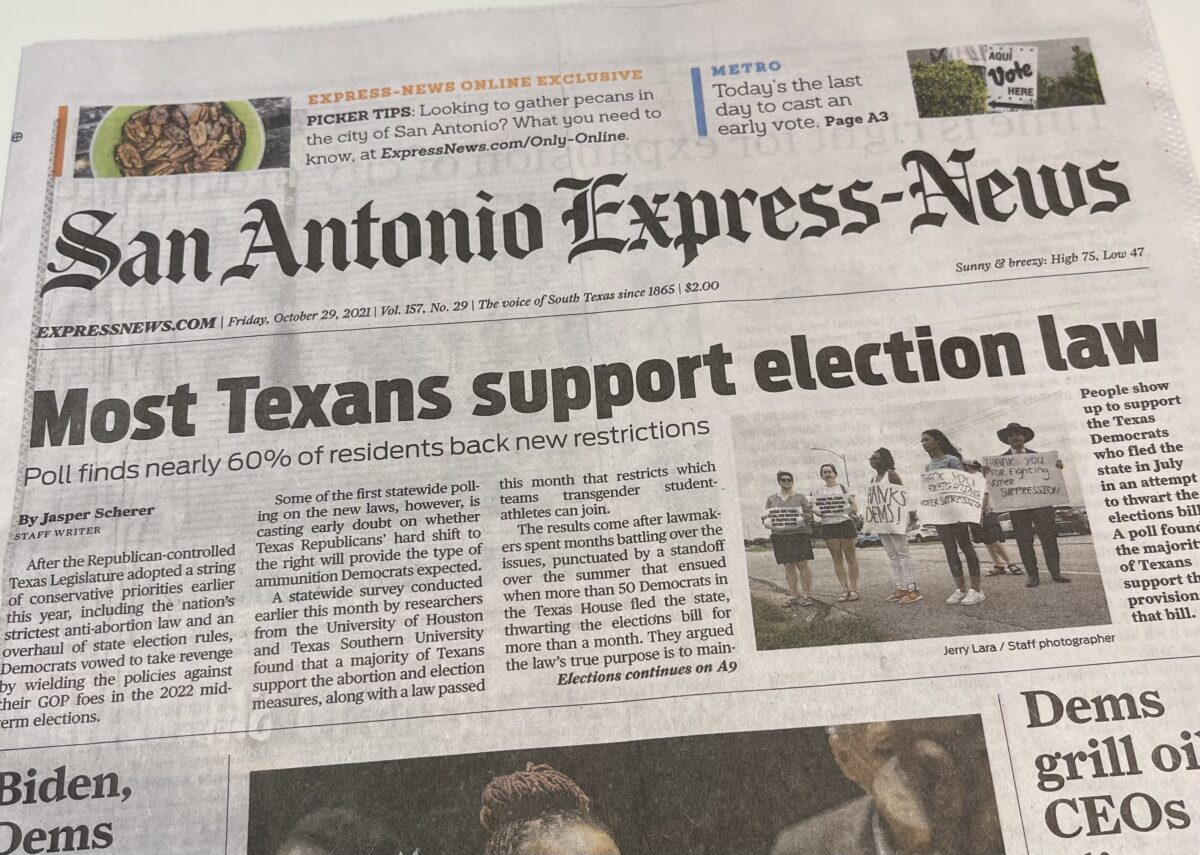When Walter Wendler, president of West Texas A&M University, blocked a drag show performance on his campus, likening it to blackface, he was excoriated by the organized LBGTQ+ community, which launched a petition calling it a “gross and abhorrent comparison of two completely different topics. It claimed Wendler was using an “incorrect definition of drag as a culture and form of performance art.”
But Wendler is right. Drag shows are essentially the same as blackface. It’s not even a close call. Here’s how the Smithsonian’s National Museum of African American History and Culture describes blackface:
“Minstrelsy, comedic performances of “blackness” by whites in exaggerated costumes and make-up, cannot be separated fully from the racial derision and stereotyping at its core. By distorting the features and culture of African Americans—including their looks, language, dance, deportment, and character—white Americans were able to codify whiteness across class and geopolitical lines as its antithesis.”
Change blackness to womanhood and you have a precise definition of drag—”comedic performances of women by men in exaggerated costumes and make-up…” The only difference is that most thinking people have long recognized that blackface is the essence of racism and hate. As the Smithsonian notes, it “cannot be separated from racial derision and stereotyping at its core.” Similarly, drag shows are all about misogyny and utter contempt for women.
It is inexplicable that there is so little outrage about the obvious and vicious sexism that emanates from drag queens and drag performances, but as the Dallas Morning News reports, drag shows have become part of the mainstream, popular culture.
Ignoring the hateful and belittling stereotypes of women presented by drag queens—catty, bitchy, dumb and obsessed with sex—Nancy Pelosi, the first woman ever to serve as Speaker of the U.S. House, appeared as a guest on “RuPaul’s Drag Race All-Stars” where she praised the men for the “joy and beauty you bring into the world.”
Both blackface and drag trace their roots to Shakespeare. Women were forbidden to act in Elizabethan times, but many believe Shakespeare’s hand-written stage directions, “DRAG,” indicated “dressed as a girl.” But nothing in Shakespeare’s works indicates a disdain for women. Juliet, Lady Macbeth, Beatrice, Viola and Cordelia weren’t stereotypes, even though they were played by men. And Shakespeare’s masterful Othello, played by white actors in blackface until modern times, reveals that he understood the evil and pain of racism.
Even using the standards of “presentism” that is so popular among the left, it is hard to see how Shakespeare’s endorsement would count much for blackface or drag. He lived in a time when slavery was not particularly controversial, and witches were still being burned.
Blackface migrated to America and took hold in the 1830s. Jim Crow was a blackface character. According to the Smithsonian, minstrel shows including troupes of white actors performing as black people became popular after the Civil War and continued until relatively recently. They note that “The Black and White Minstrel Show” was a popular British television show until the late 1970s. It ended after the Civil Rights movement in the United States heightened awareness about racism.
If, as the students at WTAMU insist, banning drag shows is an offense to gay and lesbian people, perhaps there is a parallel in the fact that the so-called “King of Blackface,” Al Jolson, was lauded for his musical talent throughout his career. Knowing the racism and damage that was done, it is unimaginable today, but some African Americans believed Jolson brought black music to the theatre at a time when blacks were not allowed to appear on stage.
One of the ugliest things about blackface is that it perpetuated the most violent racism in America by pushing racial stereotypes that black men were stupid with enormous sexual appetites. Alleging rape was one of the most common motivations for lynching, and blackface played a huge role in pushing that myth.
Drag pushes similar sexual stereotypes about women including overdone facial makeup—massive brows, lips and lashes, exaggerated breasts and wildly gyrating sexual movements that suggest voracious sexual appetites.
That’s one reason Dr. Wendler is right when he says there’s no such thing as a harmless drag show and why Texas State Sen. Bryan Hughes, R-Tyler, should be lauded for Senate Bill 12 and Senate Bill 1608, which restrict drag shows to adult audiences and keep them out of public libraries.
Hopefully the “RuPaul Drag Race All Stars” will go the way of the “Black and White Minstrel Show” as the public finally realizes drag shows have nothing to do with gay rights. They are all about hate—and a particularly vicious kind of sexism.




